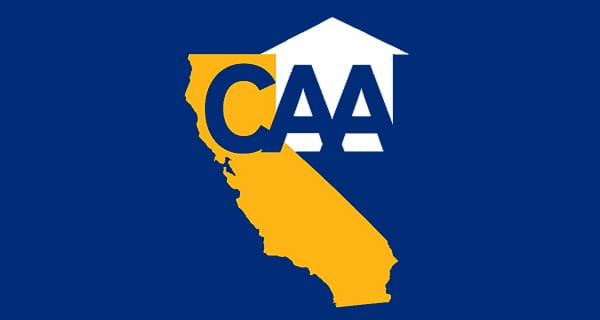State lawmakers are scrambling to keep the state’s COVID-19 eviction moratorium from expiring June 30, even as mass vaccinations and dwindling infection rates have allowed California this week to fully reopen its economy.

Mike Nemeth
CAA Communications Director
State lawmakers are scrambling to keep the state’s COVID-19 eviction moratorium from expiring June 30, even as mass vaccinations and dwindling infection rates have allowed California this week to fully reopen its economy.
In the near future, lawmakers will almost certainly unveil legislation to extend or replace SB 91, the law that banned most evictions while creating a framework to distribute federal rent relief dollars.
The California Apartment Association insists that any extension of the moratorium be brief — such as 30-45 days — and not stretch to the end of the year as tenant activists demand. The association is seeking several other reforms to the law.
While some renters continue to struggle financially due to the pandemic, the current incarnation of SB 91 fails to focus its protections on this shrinking population. Over the past few weeks, CAA members have sent thousands of letters to legislators, many describing abuses of the system. An owner of a single-family rental in Los Angeles, for example, writes that her tenants boast a combined income north of $350,000, own a $3 million home, and send their children to private schools.
“They are completely taking advantage of this law, but because its written so broadly and poorly, they are still legally allowed to be there and not pay rent,” the owner writes. “And I’m not allowed to do anything. In fact, now if I try to even inquire about funds, they threaten [me] by saying I’m harassing them.” Los Angeles’ ordinance is much more stringent than state law, making it difficult for rental property owners to collect rent or terminate tenancies when tenants fail to pay or apply for assistance.
An owner with three units in San Mateo writes that two of her tenants have been working for many months but still refuse to pay rent.
“The third tenant rents a studio unit but lives with her daughter in the East Bay,” the owner writes. “She has not paid rent since last April and has no intention of paying rent in full. She uses her unit basically for storage, as I know her shower is not functioning, as it is being used as a storage closet.”
An owner of a three-bedroom condo in Manhattan Beach writes that her tenants, a mother and daughter, secured a famous Hollywood producer/director as a guarantor for the rent. They stopped paying rent in January 2020, she writes, but COVID-19 struck before she could evict them.
“Her extremely wealthy and famous guarantor also declined to pay. They have been living rent free for 18 months now and owe me rent of $84,600. They claim COVID difficulties, but their guarantor never did.”
CAA leads growing movement to stop lengthy extension of eviction ban
Despite these horror stories, many honest renters and their housing providers have worked together to complete local or state applications for rent relief. Too many in this situation are still awaiting a verdict on their applications, let alone the needed dollars. Luckily, the state has responded to feedback from CAA members and simplified its application form.
The pandemic is ending, and an extension of SB 91 must require the rapid distribution of federal funds, including reimbursement of 100% of rental arrears so that rental housing providers can recover financially, and tenants can move ahead without a mountain of rent debt.
It’s been 15 months since COVID-19 shelter-in-place orders first came down. By now, all tenants who’ve suffered a financial hardship should be able to document it in some way. Otherwise, they should not qualify for eviction protections. While tightening the qualifications for eviction protections, California — with a budget surplus and more federal rent relief dollars in the pipeline — should broaden eligibility for assistance. Tenants with true hardships, and their rental housing providers, have been disqualified from rental aid based on income levels. At this point, all who can prove a financial need based on the pandemic should qualify for help. Rental owners also need compensation for rent lost to unit abandonment. The pandemic led many residents to turn in their keys and walk away from their obligations. Landlords have not been able to walk away from their own.
CAA thanks the many rental housing providers who shared their stories and concerns with lawmakers in recent weeks. So far, more than 4,000 letters expressing concerns over an extension of SB 91 have arrived in the inboxes of state legislators. Lawmakers are hearing those messages, but now is not the time to let up. In addition to writing your Assembly member or senator, consider calling their offices. Find your local representatives by typing in your address at Find Address (ca.gov).


